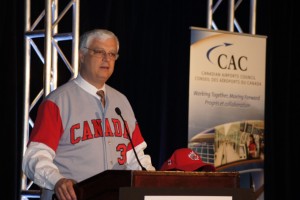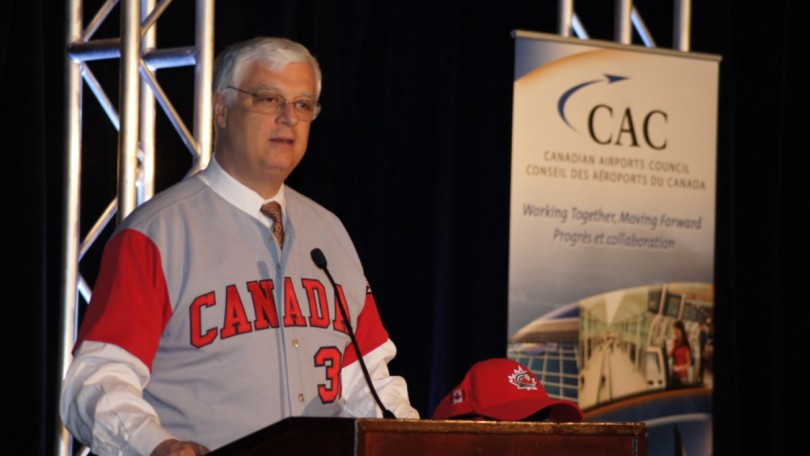The View From Washington: The Perspective of a Two Week Vacation From the News
 Spending 35 years in the bubble of Washington, with its all news all the time culture, I have often wondered how the place, and how the news, might seem to someone dropped here from another world. Two weeks in Florence, Venice and Tuscany with nary a television or newspaper in sight (I only used my iPad to look up sports scores) provide me the closest thing.
Spending 35 years in the bubble of Washington, with its all news all the time culture, I have often wondered how the place, and how the news, might seem to someone dropped here from another world. Two weeks in Florence, Venice and Tuscany with nary a television or newspaper in sight (I only used my iPad to look up sports scores) provide me the closest thing.
Of course, since my return and this being Washington, I have quickly become re-immersed in political news and, to me, the state of electoral play seems about where it was before I left. Since this column will likely run after the election, just refer back to my last piece to read how I see things. We will be able to see whether I am any good at predicting the political future. In the end, I do not think it matters much who controls the Senate, for example, I just believe the landscape is not going to be conducive to outward looking, internationally cooperative, types of initiatives (though I am willing to bet a nickel that the President will make positive executive moves on Keystone, immigration and maybe even Cuba after the election – all of which are of interest north of the border).
Re-emerging after two weeks away and seeing the stories that dominate the U.S. news, this diagnosis seems doubly discouraging as cooperation and clear thinking are certainly required. If you watch the news here it is all Ebola and ISIS all the time. Some news networks seem intent on a mission of scaring the American people (the CNN crawl reminds us that the bedding of the Ebola patient still hasn’t been changed; who knows if this is a good or bad thing it just sounds awful. It also reminds us terrorists still hope to strike the U.S. homeland. Of course they do. Every American kid wants to hit a home run to win the World Series. Every Canadian kid wants to score the winning goal in the Stanley Cup finals. Every terrorist, or aspiring terrorist, wants to hit the U.S. Not going to change – and they are not going to retire either). We are reminded there are some number of ISIS fighters with American or Canadian or European passports and they may be coming after us! I even heard some suggestion that visas be required for ANY foreign visitor (imagine what THAT would cost in time, money and lost economic activity!). There is talk of taking the temperature of every passenger, even though this would not have uncovered the Ebola case causing all the furor here right now.
I do not want to downplay the danger posed by either of these; they are real and there are risks. But while there is total focus on the danger and risks, there is much less on the fact that we need to work together across international borders to deal with these matters. Public health officials and intelligence officers will man the front lines on each. As the head of the Centers for Disease Control has said the only way to bring the Ebola risk near zero is to contain the outbreak in Africa and then defeat it. That will require our leaders to work together and commit the resources necessary. And, by the way, banning flights to and from the region will only serve to work against that goal by keeping aid away. The way to keep ISIS fighters from unleashing attacks in the U.S. or Canada or Europe is for our intelligence agencies to work together to keep them from coming in the first place and to defeat them in Syria and Iraq.
For an entire afternoon it seemed as if CNN was talking about the fact that the Ebola patient came here on a plane. They labeled one of their reporters an “Aviation Correspondent” just to drive the point home. The travel industry has been active in reassuring the public, though frankly it always sounds so defensive when they do, and I always wonder if people think the message is self-serving (yes, I even wondered that when I was a leader in that industry and sending those same messages). It would be nice for someone in the government, in a leadership position to say something constructive (unlike in 2009 when the Vice President said he would not have a family member fly during the SARS crisis). But so far, nothing. There is a similar lack of constructive engagement from our leaders in dealing with the public regarding the ISIS fighters many fear will return to their homelands and do damage.
Yes, it is true terrorists want to use our transportation systems against us, one way or another. Yes, it is true that modern transport systems make it easier for exotic diseases to traverse the globe. Yes, we should be on guard. Yes, we should be concerned.
But, no, we should not be paralyzed by our fears and concerns. No, we should not always be looking to cast blame whenever something happens. This is a real political problem in the U.S. and increasingly in the democratic world. Accountability and blame are very different things.
A generation ago, as the European Community (as it was then called) put into place its so-called “1992” single market initiative, and as NAFTA was then being debated and approved, one could be tempted to think we were entering an era of greater cohesion and cooperation. Yes, we still had nasty dictators in places like Iraq and Libya, the same theocrats ruled Iran and we had fresh memories of Tiananmen Square to remind us about the true character of the Chinese regime. The world was not perfect. But it seemed a more open and constructive place.
With so many in politics and the media using issues like terrorism, disease and immigration to scare us in the United States, in Canada and, yes, in supposedly open-minded Europe, we are constantly reminded that the world is neither as open nor as constructive as it needs to be. It is sad, because terrorism, disease and immigration are exactly the kinds of issues that rely on good information, constructive dialog, public education, and cooperation. NAFTA and the European Union should be great weapons in the fight for our future. They are supposed to be the instruments through which we win the war of ideas and values, work together to solve problems and isolate those who would cause trouble. Travel and transportation should be the means to spread the message. But those hopes have fallen way short.
The simple fact is that we had terrorists, diseases and immigrants a generation ago. The difference is that people felt they had the tools to deal with those issues. Today, so many want us to believe that we are powerless to deal with these issues unless we close ourselves off. The sad fact is that the people pushing that message are getting votes in important elections and seem to have the momentum. The message that we ought to just take care of “our own” whomever “our own” happen to be, has become very appealing, even as the bad economy and its anxieties recede into the background.
These are not partisan comments. I try to read as much as I can about what is happening around the world and I like to ask people their views and opinions. Last week I was questioning new friends deciding whether to vote Conservative or UKIP in Britain and just this morning was in touch with a friend in Hong Kong about what is going on there. I am often in touch with Canadian thought leaders. And one of the real benefits of being here in Washington is access to real time thinking from America’s best (and sometimes worst).
I wish I saw things differently. I wish I could be more optimistic. I am not a pessimist by nature. But a pessimist I am right now.
Voters (and consumers of mass media) ought to be demanding better. Forcing European and Canadian travelers to get visas will not keep us 100% safe from an ISIS terrorist willing to come here and commit an awful act. Thermometers will not keep us safe from Ebola. Acting to constrain travel and transportation is no kind of answer to the question of how to defeat global dangers. But right now, that’s all we seem to be getting.
That’s how I see it from here. Let me know your thoughts: goprincipato@gmail.com
The name
eventbrite is already in use. 
